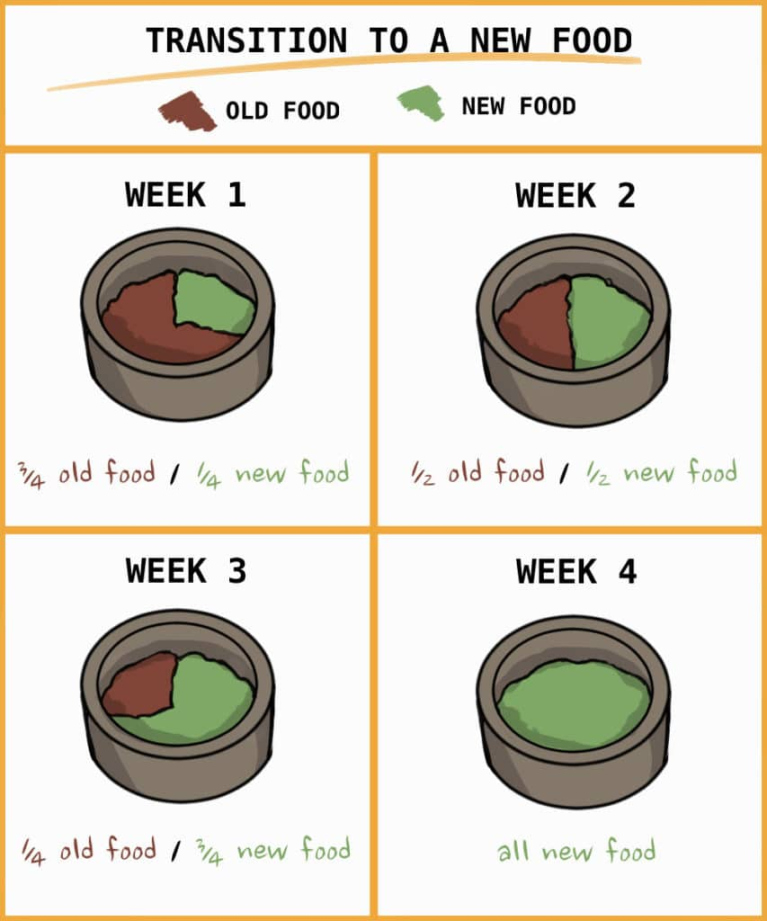How Much Pellets for 8 Week Old Rabbit?
Feeding your 8-week-old rabbit the right amount of pellets is crucial for its growth and overall health. At this stage of development, your rabbit is transitioning from a diet primarily consisting of its mother’s milk to solid foods. Providing the appropriate amount of pellets is essential to ensure your rabbit receives the necessary nutrients without overfeeding. In this article, we will discuss how many pellets to feed an 8-week-old rabbit and answer some frequently asked questions regarding their diet.

1. The Importance of Pellets in a Rabbit’s Diet
Pellets serve as a vital component of a rabbit’s diet, especially during the early stages of growth. They are nutritionally balanced and provide essential vitamins, minerals, and fiber. Pellets are designed to meet the specific dietary requirements of rabbits and can help prevent nutritional deficiencies.
2. Determining the Right Amount of Pellets
While pellets are important, it’s crucial to feed your 8-week-old rabbit the appropriate amount to avoid overfeeding. Overfeeding can lead to obesity, dental issues, and digestive problems. The general guideline for feeding pellets to an 8-week-old rabbit is around 1/4 to 1/2 cup per day. However, it’s important to consult with a veterinarian or breeder who can provide more specific recommendations based on your rabbit’s breed, size, and overall health.
3. Factors to Consider
Several factors can influence the amount of pellets your 8-week-old rabbit requires:
- Breed: Different rabbit breeds have varying dietary needs. Larger breeds may require slightly more pellets compared to smaller breeds.
- Growth Stage: At 8 weeks old, your rabbit is in a crucial growth stage. Adjust the pellet amounts accordingly to support healthy growth.
- Activity Level: Active rabbits may require slightly more pellets to compensate for the energy they expend.
4. Monitoring Your Rabbit’s Weight
Regularly monitoring your rabbit’s weight is an essential part of ensuring they are receiving the right amount of pellets. A healthy 8-week-old rabbit should have a well-proportioned body and feel neither too thin nor too chubby. If you notice your rabbit becoming overweight or underweight, consult with a veterinarian to adjust their diet accordingly.
5. Introducing Hay and Fresh Vegetables
Pellets should not be the sole component of your rabbit’s diet. Introduce hay and fresh vegetables gradually to provide a well-rounded and balanced diet. At this age, your 8-week-old rabbit should have access to unlimited fresh hay, such as Timothy hay, which helps maintain their dental health and provides additional fiber. Additionally, introduce small amounts of fresh vegetables gradually, starting with rabbit-safe options like leafy greens (e.g., lettuce, parsley).
Remember to introduce new foods slowly to avoid digestive upsets.
Frequently Asked Questions
1. Can I free-feed pellets to my 8-week-old rabbit?
While it may be tempting to leave unlimited pellets out for your rabbit, free-feeding can lead to overeating and health issues. It’s best to provide measured portions to avoid overfeeding and closely monitor your rabbit’s weight.
2. How often should I feed my 8-week-old rabbit?
At 8 weeks old, you should feed your rabbit pellets twice a day, in the morning and evening, to ensure they receive a consistent and balanced diet.
3. Can I give treats to my 8-week-old rabbit?
Treats should be given sparingly and in moderation. Focus on providing a balanced diet of hay, pellets, and fresh vegetables, and limit treats to occasional rewards for training or bonding purposes.
4. Should I consult a veterinarian regarding my rabbit’s diet?
Yes, it’s always a good idea to consult with a veterinarian or an experienced rabbit breeder regarding your rabbit’s specific dietary needs. They can provide personalized recommendations based on your rabbit’s breed, size, and overall health.
Feeding your 8-week-old rabbit the right amount of pellets is crucial for their growth and well-being. By considering their breed, growth stage, and activity level, and regularly monitoring their weight, you can ensure they receive an appropriate and balanced diet. Remember to introduce hay and fresh vegetables gradually and seek professional advice when needed. By providing proper nutrition, you are setting your rabbit up for a healthy and happy life.
Related Articles…
Copyright Notice:
All images on this website are obtained from the internet and remain copyrighted to their original owners. If you hold copyright to any image and want it taken down, please reach us.